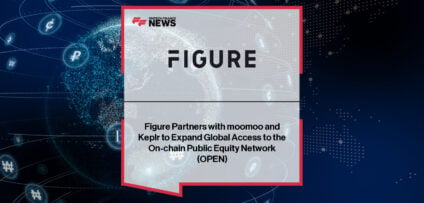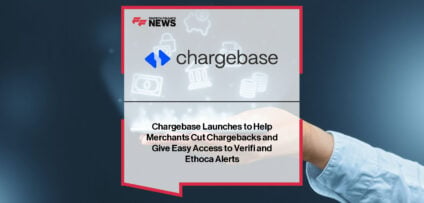Breaking News

EXCLUSIVE: “Have we really done well enough?” – Theodora Lau in ‘The Fintech Magazine’
Theodora Lau gives her perspective on whether fintech has truly lived up to its moral promise
I was catching up with a good friend over dinner recently, and the question arose: has fintech really changed anything? Did we accomplish what we set out to do… have we done enough? It was a loaded question but one worth exploring.
Has fintech improved financial inclusion? Personally, I think it’s a mixed bag and one that is geographically dependent.
For example, micro, small and medium-sized enterprises (MSMEs) are the backbone of the Southeast Asian economy, accounting for 97 per cent of all businesses in the region and employing 67 per cent of the working population, according to the Asian Development Bank (ADB). Despite representing the lion’s share of businesses, these only contribute 40.5 per cent to each country’s gross domestic product (GDP).
Enabling a digital economy is key to improving this crucial sector’s wellbeing and growth. In recent years, we have seen a proliferation of fintech apps in Asia and Southeast Asia, catering to the needs of the unbanked. The digital economy is slowly becoming the norm in many parts of the region, propelled by e-commerce and on-demand platforms, from ride-hailing to food delivery.
In 2021, 69 per cent of consumers across the six largest Southeast Asian countries by GDP (Indonesia, Malaysia, the Philippines, Singapore, Thailand and Vietnam) had made online purchases in the previous 12 months. More importantly, such digital ecosystems, including the likes of Grab and GoTo Group (which includes Gojek, GoTo Financial and Tokopedia), help to provide crucial payments and financial services for MSMEs, which previously did not have access.
In Indonesia alone, there are 47 million under-banked adults and 92 million people who have never used a bank, and the lack of formal credit history prevents these individuals and business owners from reaching their full potential. With 75 per cent of the Indonesian population owning a mobile phone, fintech’s positive impact on these micro-entrepreneurs and small business owners, from saving to lending and investing – now and in the future – cannot be understated.
For instance, by assessing the data on the earnings made via the Grab app, along with customer reviews and other transactions, Grab can more accurately determine the MSMEs’ risk profile and creditworthiness, and extend loans to help them grow their businesses. And the benefits extend to merchants and consumers as well. In addition to obtaining ride-hailing and food delivery, consumers can also get on-demand insurance, invest and make purchases with instalments via the Grab superapp, thus expanding options for those who may not have credit cards or lack access to formal financial services.
According to the Tech For Good Institute, 67 per cent of Malaysians have digital access through mobile phone subscriptions, and 83 per cent of them have adopted digital payments using mobile e-wallets. Recognising the opportunities presented by e-wallets, the Malaysian government is partnering with GrabPay Malaysia to disperse electronic credit vouchers via the app, to encourage spending and to boost cashless payment adoption among young people and businesses.
Compared to the COVID-19 stimulus cheques in the US, which are both costly and inefficient, it does make me wonder how much we have really changed the status quo on this side of the hemisphere? Of course, financial inclusion is just one indicator of progress.
And we can’t ignore the wins that we have made, especially when it comes to awareness of the needs of under-represented communities. From immigrants, Black, and Latinx, to the LGBTQ+ community, artists, and justice-involved individuals, numerous fintech startups have emerged in recent years to address the needs of demographics that are not well-served by incumbent organisations.
But, taking a step back and looking at the larger financial services ecosystem, I find myself asking if we have simply become too complacent to innovate beyond what we are familiar and comfortable with.
And, if not now, when?
‘Change is hard. Change takes time.’
Those are words we often hear when we lament the slow pace of progress.
But how slow is too slow? And how can we effect real and sustained change? It is, of course, human nature to gravitate towards people we know and problems we can identify with. It is not by accident that startup funding is concentrated in only a handful of major metropolitan areas and only among founders of certain demographics. Despite heightened awareness of the need to fund diverse founders and pledges made by organisations large and small, funding for those from under-represented groups remains abysmal.
Only 12 per cent of global fintech founders and co-founders are women, and only six per cent of fintechs have female CEOs. Despite a surge in funding in recent years, female-founded startups received only 2.1 per cent of the total capital invested in venture-backed startups in the US, representing the smallest share since 2016. With women comprising less than 10 per cent of partners at the 100 largest venture capital firms, we shouldn’t be shocked that it will take a long while to see meaningful progress.
And there it goes again: ‘change is hard, change takes time’.But there is more, isn’t there? Beyond the headline diversity and financial inclusion figures, how are we fostering our internal cultures?
Are policies inclusive of everyone who needs flexibility – not just when and where to work, but also how to work? Are we truly creating opportunities to have a broader representation at the table and ensure their voices are heard? From boardrooms to C-suites, how much are we truly encouraging innovation, for the good of the communities we serve? Or are we merely paying lip service in order to dress up our social responsibility reports and ESG (environmental, social and governance) ratings?
I can’t help but reflect on a recent article on sustainability, where the headline read ‘Vanguard refuses to end new fossil fuel investments’, citing its duty to maximise returns for clients. And, despite the Net Zero Banking Alliance committing to aligning its members’ lending and investment portfolios with net-zero emissions by 2050, Citigroup, Wells Fargo, Goldman Sachs and Bank of America spent a combined $137billion on fossil fuel projects last year alone.
“Have we simply become too complacent to innovate beyond what we are familiar and comfortable with?”
So, who do we truly serve? For whom are we innovating, and why? And can we truly bank on the industry to change? Can morals and money co-exist? A moment of reckoning. In financial services, we talk a lot about technical debt and the need to transform in order to catch up with newer and more agile companies. But rarely do we talk about moral debt and our responsibility to society.
What role do we play, individually and professionally? The risks posed by climate change and social injustices are no longer hypothetical but becoming more real and prominent over time.
It is not just a financial risk, but an existential risk for our future generations. There is an opportunity now for us to transition to lower-carbon-emissions technologies and more inclusive and sustainable ways of living and working, while recognising that there is still room for improvement in how we define and measure ESG. Innovating for social good is not a project, but a never-ending journey. I’m reminded of the words of Cornelius Holmes, an American who experienced slavery and freedom:
“Though the slavery question is settled, its impact is not,” he said. “The question will be with us always. It is in our politics, our courts, on our highways, in our manner and in our thoughts all the day, every day.”
The onus is on all of us to build a more inclusive future with purpose and intent – one that goes truly beyond good, one where capitalism benefits all stakeholders. Now is the time to fulfil our promise of revolution, to live up to what is expected of our industry. Moral money needs to be at the heart of it all. If not now, when?
This article was published in The Fintech Magazine Issue 25, Page 78-79
People In This Post
- Lüt Announces Strategic Partnership with Safe Harbor to Expand Access to Compliant Closed-Loop Payments for Cannabis and Specialty Merchants Read more
- Figure Partners with moomoo and Keplr to Expand Global Access to the On-chain Public Equity Network (OPEN) Read more
- OneDome Raises $25M Pre-Series C, Bringing Total Funding to $40M Read more
- intelliflo and Söderberg & Partners Form Strategic Partnership to Drive Adviser Efficiency Read more
- Axiology Secures €5 Million Seed Funding to Accelerate the Modernisation of Europe’s Capital Markets Read more











